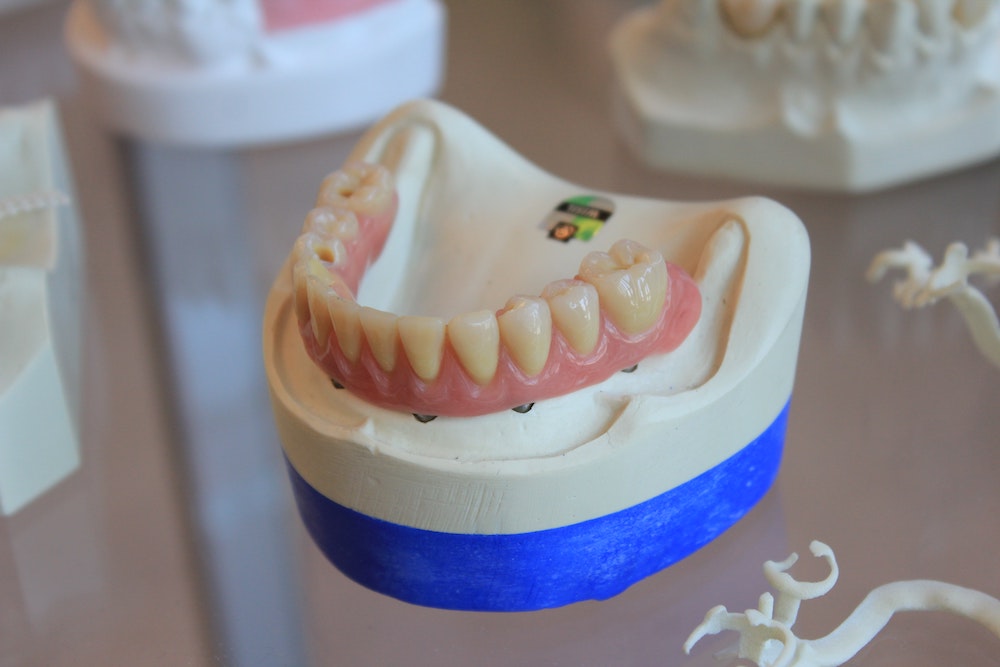
4 Easy Ways to Remove Denture Adhesive
There are various forms of denture adhesives available on the market – pastes, powders, and adhesive pads. No matter the type of adhesive, the principle is the same. Denture adhesive is placed inside of your dentures to help create a seal and secure them in place.
Generally speaking, well-fitting and well-maintained dentures do not need to be secured with denture adhesive. Over time, the bone that supports your dentures will shrink progressively, causing your dentures to become loose. Denture adhesives can provide temporary relief from loose dentures by filling the gaps where the denture no longer fits flush against the jaw bone.
Why Should You Remove Denture Adhesive?
For the benefit of your oral health, dentures should be removed from the mouth at least six to eight hours in 24 hours for you to clean them and to allow your gum tissue to rest.
Although removing dentures with no adhesive residue on your gums and minimal adhesive remaining on the dentures is possible, it does not always happen. Be sure to completely remove the adhesive from your dentures and gums at night.
For denture adhesive to create a water-tight seal, do not apply new denture adhesive before completely removing any old adhesive.
Can Denture Adhesive Be Harmful If Swallowed?
Overuse of zinc-containing denture adhesives can elevate the zinc levels in your body. Large quantities of zinc can lead to neurological issues like numbness and problems with balance and walking. Patients should use these products only as directed by the manufacturer or by their denturist.
See Also: Can Denture Adhesive Make You Sick? 3 Side Effects
How to Remove Denture Adhesive?
Sometimes denture adhesive does not naturally become loose throughout the day, making it difficult to remove your dentures. Often, even after you have taken your dentures out, adhesive residue remains in your mouth. This can leave you with an uncomfortable, sticky feeling. Here are some methods to remove adhesive from your dentures and clean up any adhesive remaining in your mouth:
Warm Water
If your denture adhesive has not loosened and you cannot remove your dentures easily, rinse your mouth with warm water. Take a sip of warm tap water and swirl it in your mouth for a minute to break the seal. After the denture has been removed, repeat the procedure two or three more times to thoroughly remove the adhesive residue.
Mouthwash
Using mouthwash not only freshens your breath and improves your oral health, but it can also be used to loosen denture adhesive and rinse away the residue.
Saline solution
Another method to remove denture adhesive from gums is to rinse your mouth with a mixture of salt and water. Mix half of a teaspoon of salt in a cup of water until it is completely dissolved. Then rinse your mouth with the solution to loosen the denture adhesive and clear away any remaining residue.
Toothbrush
Use a soft-bristle toothbrush to remove any lingering adhesive from your gums. Put a small amount of toothpaste on the brush and brush your gums gently with it. This will remove any adhesive remains and also enhance your oral health. It is advisable to follow this step regularly to maintain clean and healthy gums.
If you are uncertain about how much adhesive to use or unable to remove a denture secured with adhesive, contact your dental health professional for advice.
See Also: Reasons Bottom Dentures Won’t Stay in and How to Fix Them
Adhesives and Ill-Fitting Dentures
Patients should know that denture adhesives are not a permanent solution for ill-fitting dentures. Prolonged wear of ill-fitting dentures can actually accelerate bone loss. Have your dentures relined or get new dentures made when your existing dentures no longer fit as well as they once did.
Whether your dentures need to be relined, you are looking for new dentures, or cannot figure out how to remove denture adhesive from your gums, contact us at European Denture Center. We are here to help. We are available to advise you on all aspects of denture wear and denture care.


